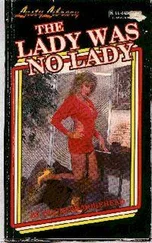Abu Fares dials my mother’s number on his phone, then hands it to me.
‘Hi, Mama! I’m here. I’m home, Mama. I’m in Palestine!’
Uncontrollably, I begin to repeat these words into the phone. ‘I’m here, Mama! I’m back home! I’m in Palestine!’ Real tears stream down my cheeks. I listen to my mother’s voice — only now does she begin to believe me. ‘Yes, my son. You are home. Welcome, welcome! I can’t wait to see you. Your cousins are going down to Beit Hanoun to wait for you.’
‘No, no, Mama! Tell them not to go there until 9. I won’t get to the crossing until after 9, maybe even a little later.’
I give the phone back to Abu Fares, who immediately asks, ‘How long has it been, Abu … Abu …?’
‘Abu Fadi. Almost forty years.’
‘My God,’ Abu Fares snorts. ‘That’s an entire lifetime. God help your mother — she’s jumping for joy right about now, huh?’
Abu Fares’ phone rings and he gives it to me. ‘It’s for you.’
‘Hello? Welcome, cousin! Did you make it safely? Where are you?’
This must be Abdelfettah, my cousin on my mother’s side. He must have got the number from my mother’s phone.
‘Hi, cousin! I’m on my way. We’re driving right now.’
‘We’ll be at the crossing at the time we agreed. Where are you now?’
Abu Fares points toward the distance. ‘That’s Ramleh up ahead.’
Ramleh edges toward us, a white line drawn across a green billboard.
‘We’re at Ramleh, cousin. Don’t go to Erez before 9.’
The car slows down, then stops at a traffic light.
I begin to look at the traffic sign, and study the name like someone who is spelling out the letters for the first time, R-a-m-l-eh. The arrow beneath points to the right. Underneath that, I read out ‘Hayim Nahman Bialek Street.’
I laugh bitterly to myself — I am neither cool nor calm. So Bialek gets to have a street named after him in Ramleh, but George Habash doesn’t? Habash doesn’t get a street named after him here, nor next door in Lod, where he was born, nor in Wahdat Camp in Amman, nor in the Republic of Fakahani in Beirut. Bialek who came from overseas gets to be a native of Ramleh, while Habash, native son of Lod, has to be a refugee far, far away.
The light changes and Abu Fares speeds off again. All my senses are on alert, picking up every possibility. Every little thing that might prevent my memory from reaching into its past. But there is Abu Fares working to keep the door to the past wide open, and in doing so, he keeps my eyes wide open too. Their desire to see all this dispels their drowsiness.
‘Over there is Ramleh’s mosque. Do you see it, Abu Fadi? Over there, on the right.’
I turn to look where he points, even as the car speeds on. Behind a distant rise of cypress trees, a minaret flashes by, fleeing from my eyes. The image goes by so quickly that my eyes cannot really make it out.
‘Do you know when we lost Lod and Ramleh, Abu Fadi?’
‘Are you asking me, Abu Fares?’ I am surprised that someone would even ask. I begin to recount the facts for him — how they were attacked by the Haganah in 1948, how they fell. He sits there listening to me as if it was the first time he had ever heard the story. When I finish, he comments, as if to soften the blow of all these memories: ‘Lod was lost, and Ramleh was lost and so was the mosque. Some died and some were killed. Some went somewhere else and others emigrated and never came back. Some weren’t able to take anything with them at all when they went. But you know, some Palestinians managed to stay put in Ramleh. They held on to what they had, then Palestinian refugees from elsewhere moved there too.’
‘I’ve got a cousin from Ramleh,’ I comment. ‘Ismael Dahman is his name. He’s got a daughter named Aisha in London and she goes home to visit once a year. She told me that Ramleh is not what it used to be. She says now it’s mainly Ethiopians there. And collaborators. She says that since Oslo, Israel has used the city to resettle collaborators from Gaza.’
The car approaches another traffic signal where there is another green billboard. The olive-green colour of these signs is deceptive — it makes them seem like advertisements of peace. I begin to read the Hebrew while translating. Rishon LeZion. The First of Zion. Then Rehovot and Kfar Bilu.
The car stops at a third traffic light. While we wait, a young woman crosses the road. She is wearing a small black-and-red striped backpack. This is the first female Israeli soldier my eyes have seen since the 1956 occupation of Gaza. Suddenly I remember what my aunts said when they first laid eyes on female Israeli soldiers. These women wore trousers and took part in the foot patrols around the camps. ‘Israeli women are like men,’ they whispered to me. ‘They even pee standing up.’
The car goes on its way and the names of cities begin to race after each other on the green traffic signs. Gan Shlomo-Kvutzat Schiller. Givat Brinner. Each one erases a signpost in my mind, and presents new facts for me to see.
Ashkelon 25 km . Was there really a place where it all began? Was there a beginning? For fifty-seven years, we have been counting our losses, sinking further and further into the distance. 1956: the War of Tripartite Aggression, the massacre of Khan Yunis. 1967: the Setback, and the loss of the remaining sliver of Palestine. 1973: the 6 of October War, in which Sadat triumphed over himself. 1982: the invasion of Lebanon and the expulsion of the PLO. Losses and endings giving birth to even more losses and endings. Then the Oslo Accords. The beginning of another string of losses and endings — and not one of them the beginning of the real path back to Asqalan. Asqalan is right here now — only twenty-five kilometres away.
‘You’re thinking about something, aren’t you! Should I take you back to Asdud? What do you say, Abu Fadi? We take a quick tour of Majdal, then head up to Asdud? The weather’s gorgeous this morning — it makes you want to take a little detour, doesn’t it?’
Unable to reply, I sigh. As I breathe in the distant past, my lungs begin to ache.
‘Listen, it’s only going to take two hours. I’ll take you to Asdud and give you a quick tour, then we come right back. You want to see your hometown, don’t you?’
‘I wish it was on our way. We’d go there and I’d even pay good money for us to look at history together. But Asdud is too far away, Abu Fares. And my mother’s waiting for me. She’s been waiting for thirty-eight years for me to come home, and she doesn’t have that much longer to live. I better go to see her first. Asdud can wait, my mother cannot. She’s waiting to have breakfast with me, and I don’t want to be late. She can’t wait to see me.’
‘OK, whatever’s easiest.’
The car passes the exit for Asqalan and speeds through the barriers of my longing. Sderot begins to appear. From far off, it looks like a Swiss village, its red-tile roof houses carefully arranged behind thick green copses. Behind rows of trees, many of the houses look out over the main highway.
As soon as we cross into the city limits, the mirage begins to shed its splendour. The houses begin to fade, and the trees shed their leaves, as if getting ready to die. The soil loses all traces of verdure, and the grass turns barren and brown. Every distinctive feature of the place suddenly vanishes.
Abu Fares’ car continues speeding down the highway, kicking up lifeless dirt and dust. This is how you know you are approaching Palestinian territory.
‘We’re here, Abu Fadi. That’s the Beit Hanoun crossing over there.’
‘Where?’ I gasp.
‘Up there, just ahead.’
Abu Fares parks the car and gets out. I get out too. Together, we pull the suitcase from the trunk.
Читать дальше












